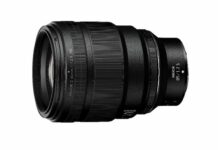September 11, 2001 changed the lives of both New Yorkers and billions of people around the world. After that fateful day, nothing would ever be the same again. One of the many examples of this were airports. On high alert, every would-be passenger would have to be subjected to pat downs, scans or questions before they could continue with their journey.
A similar kind of practice has now become the norm some cities around the world, but not on a physical basis. Mass surveillance is occurring high above city streets with the use of omnipresent cameras. These devices scan intersections, building entrances, and just about any public space you can think of.
‘Science Fiction’ Technology
The technology of some omnipresent camera systems is impressive; Microsoft’s DAS (Domain Awareness System) being installed in New York City is not only innovative, but practical, as it connects technology that the New York Police Department already uses.
Those cameras owned by private businesses and the NYPD, and then connected by DAS, can collect and archive footage for up to 30 days at a time. This means that law enforcement can use the system to not only view a crime that’s been committed, but can use the footage to follow those involved in the crime, as well as any vehicles used in the execution of that crime.
The above benefits, along with many others are included in Microsoft’s business plan, which also involves the selling of the DAS system to other cities. In New York, the DAS system is not only being defined as a tool to counter terrorism, but also as a way for law enforcement to help ensure public safety.
In an effort to assuage any doubt by city residents, the guidelines for the use of the DAS system stress that only public areas and activities will be monitored, meaning those areas and activities “where no legally protected reasonable expectation of privacy exists”. But many residents are still not satisfied, saying that those law-abiding citizens should not be subject to scrutiny by law enforcement.
Not Just New York
This fear of the loss of privacy extends beyond New York City’s borders to other areas in the United States and across the globe. Mass surveillance has become commonplace for many governments, who argue that such surveillance is necessary for the optimal protection of citizens from crime and terrorism, and to maintain social control.
But despite the now-common practice of mass surveillance, criticism abounds. Many say that political and social freedom has been stifled, in addition to privacy rights being violated, as some surveillance is suspected of being illegally carried out.
The Legal Risks of Mass Digital Surveillance
Mass surveillance may pose many more legal risks than its private surveillance counterpart. This is because of the differences between how they each fit into the fourth amendment.
While personal surveillance technology can only be applied in a limited number of scenarios and the threat to privacy is minimal, mass surveillance screens large numbers of people with the purpose of ‘rooting out’ those individuals who may pose a societal threat.
What Can Citizens Do?
Some believe that our increasing acceptance of the subtle ‘creep’ of digital mass surveillance into our daily lives or indifference about it will result in our freedoms disappearing before we even know they’ve gone. As we continue to surrender these freedoms, they say this will pave the way for even more insidious technology to be developed which erodes them even further.
These same individuals caution against other forms of ‘civil liberty theft’, such as the seemingly-innocent store card which offers customers incentives, but first demands that the customer provide their contact information.
The only way to escape being recorded by omnipresent cameras may be to live in an area where none exist. But even this may not be enough to completely avoid the technology, as any trip to the nearest large city can result in your movements being recorded for the interests of public safety.
Citations:
Guest author Ruth Suelemente has written on a variety of topics, particularly related to technology. She is a frequent contributor to http://www.highspeed-internet-providers.com/. You can also find Ruth on Google.
 Rizwan Ahmad
Rizwan AhmadThis article is contributed by Ruth Suelemente and posted by Rizwan Ahmad Author and founder of cyberockk.com, He is a tech blogger from India and he loves to share his thoughts by writing articles on this site to the different topics related to technology world,








